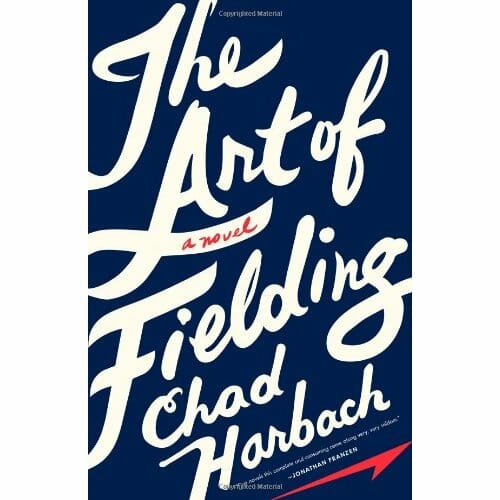The Art of Fielding by Chad Harbach
If this is success, I'd rather fail

Critics of baseball and literary fiction level some of the same complaints: too slow, pretentious, filled with esoteric nuance, lacking excitement.
They’re not wrong. As the old baseball manager Leo Durocher put it, “Baseball is like church. Many attend, few understand.”
The same applies to literary fiction. Baseball is called the thinking man’s game because enough space is left to ponder other things, and the stuffiest prose is comprised exclusively of pondering. On and on the parallels roll. It’s a wonder that someone has not underscored this before Chad Harbach, in his beautifully constructed novel The Art of Fielding.
Book Riot called Harbach’s book “a baseball fan’s baseball novel,” but it is about much more … in the way that Moby Dick is about more than a whale.
We meet the principal character, Henry Skirmishander, as a baseball prodigy. The story jumps freely between at least four different perspectives, but Henry is principal in the sense that all of the other characters may be classified by their relationship with him—Henry’s mentor, Henry’s roommate, Henry’s college president, etc.
The Art of Fielding recounts the rare season in which Henry’s college team, the humble Westish Harpooners, dared aspire for a conference title. The story begins long before the season’s first pitch and its legend lingers long after, but Harbach structures his novel around the team and the season, making success or failure the central conflict. Simultaneously, each character also aspires to individual success, spinning several subplots, each rich enough to vie for centrality:
• Henry hopes to break an important record, consecutive games without an error, held by his idol, the great Aparicio Rodriguez.
• Mike Schwartz, Henry’s mentor and teammate, waits by the mailbox for his law school acceptance letter. (He’s ruined his body playing sports he will never master.)
• Westish College President Guert Affenlight hides a forbidden love across several cultural lines including age, race and orientation.
• Affenlight’s daughter, Pella, a portrait of wasted potential, returns to Westish with hope for a fresh start.
Chad Harbach received a lucrative advance for this first novel, achieving a form of success for which many writers pine, and he drew early comparisons to John Irving. But this book makes it clear that Harbach, like his characters, longs for much more. In fact, a statue of Herman Melville towers over the campus of Westish, serving as a nod to the first great American novel and simultaneously reminding us of Harbach’s ambition.
-

-

-

-

-

-

-

-

-

-

-

-

-

-

-

-

-

-

-

-

-

-

-

-

-

-

-

-

-

-

-

-

-

-

-

-

-

-

-

-








































